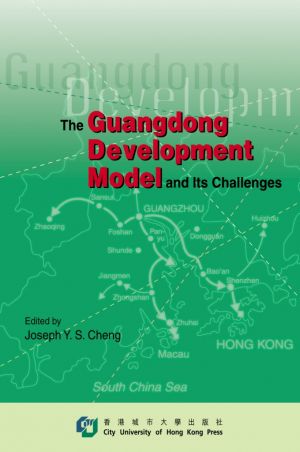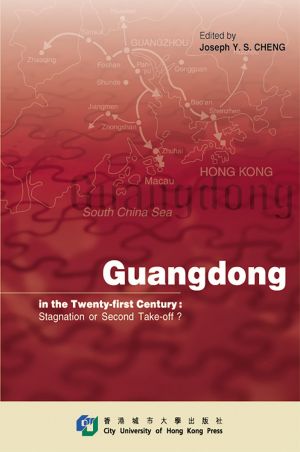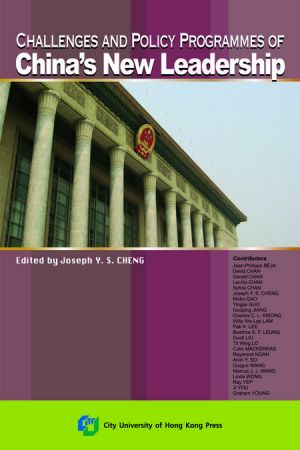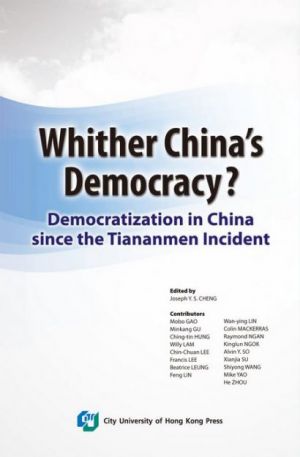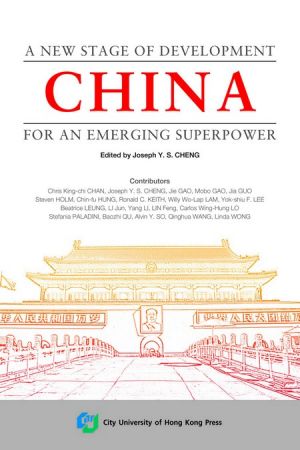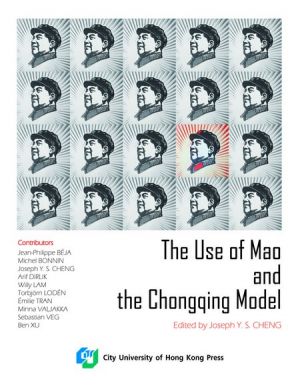The Second Chief Executive of Hong Kong SAR—Evaluating the Tsang Years 2005–2012
Punctuated by a string of "surprising events" and even alarming incidents in the crucial "sunset era" of Donald Tsang, the second Chief Executive of the Hong Kong SAR, how shall we rate Tsang's performance during this 7-year term?
This weighty monograph offers an authoritative academic critique of the HKSAR Government’s performance in various policy areas and state–society interactive topical dimensions under the Tsang years from 2005 to 2012. By inviting contributions from a number of scholars specialising in different research disciplines, the volume in 18 chapters covers a lot of key issues and public policy areas that constitute a very rich combination of analytical narratives from multi-disciplinary perspectives.
The massive coverage of this book, while exemplifying the criticality of Tsang's era when handling challenges of these aspects, will provide readers with a thorough assessment of the government during the Tsang years in a broader comparative context and on a contemporary historical scale. This scholarly title will best be appreciated by academic, research specialists in fields of government, policy studies and public administration; politicians, researchers or analysts from political parties, think tanks and pressure groups; social sciences students from both upper undergraduate and graduate courses, as well as high school students; and general readers who are interested in Hong Kong politics and policy making.
Donald Tsang enjoyed high popularity when he first became Chief Executive, reflecting Hong Kong people's trust for the civil service. But then the community's evaluations of his performance continued to deteriorate; and his popularity ratings fell sharply in the final months of his tenure. He was not even appointed to the National Committee of the Chinese People's Political Consultative Conference upon his retirement, as Beijing and the local establishment were dissatisfied with his performance too.
Seven years of inaction in housing, pension system, and long-term finance of medical services, etc. have exacerbated the territory's socio-economic problems and widened the gap between the rich and poor. Real estate speculators as well as ordinary people, for example, now understand that a modest increase of housing supply would have to wait two to three years, and an adequate land supply to satisfy the housing demand would take ten years.
During his administration, the society had become more polarized and many people felt their core values threatened. Corruption has certainly become a more serious problem; and it is sad to see the second Chief Executive referred to as "the greedy Tsang" by the media.
A team of academics was formed to offer an initial evaluation of the performance of the Tsang administration and examine the deep-seated problems of the territory. The task of assessment is complicated and many factors have to be taken into consideration, including the Chinese leadership's Hong Kong policy and the global economic environment. One should not just blame the Chief Executive. Meaningful discussion will continue to improve our understanding of the issues; and history will likely provide a more macro and balanced evaluation of the Tsang administration.
I would like to take this opportunity to thank all the authors for their support and co-operation. As editor, I am most grateful to the staff of the City University of Hong Kong Press, especially Patrick Kwong and Edmund Chan, for their professionalism and dedication throughout the publication process.
Joseph Y.S.CHENG
Chair Professor of Political Science
City University of Hong Kong
- Has He Got the Job Done?—An Evaluation of Donald Tsang Administration
—Joseph Y. S. CHENG - Expanding and Destroying the Accountability System
—Joseph W. P. WONG - The Hong Kong Legislative Council?—A Friend or an Enemy of Donald Tsang?
—Jermain T. M. LAM - Structural Weakness of the Executive-led Model—Governance and Party Politics of Hong Kong
—Chi-kit CHAN - Political Marketing Campaigns of Chief Executive Donald Tsang—The Challenges of Managing Legitimacy Deficitunder a Semi-democratic Regime
—Brian C. H. FONG - Leadership—Job Done, Leadership Pledge Unaccomplished
—Chris YEUNG - Governance and Public Policy under the Donald Tsang Administration—Critical Voices from the Christian Community in Hong Kong
—Shun-hing CHAN - Can Hong Kong Design a New Growth Engine? A Study of the Absence of Economic Policiesof the Donald Tsang Regime
—Yin-wah CHU, Alvin Y. SO - Review of the Health System
—Grace CHENG - Urban Renewal
—Adrienne LA GRANGE, Federik PRETORIUS - Housing Policy in the Tsang Administration
—Ngai Ming YIP - Got the Controversial Urban Planning Jobs Done? An Institutional Perspective
—Mee Kam NG - Actively Travelling to Sustainable Mobility
—Michelle MA, Ronald LAU, Vincent CHAN - Labour and Employment in the Tsang Administration
—Olivia K. M. IP, Sek-hong NG - Social Welfare—Widening Care Gap
—Raymond NGAN - Environmental Protection in Donald Tsang's Era—Waiting for the Daybreak?
—Kin-chung HO - Navigating the Grey Area—Hong Kong's External Relations under the Tsang Administration
—Simon SHEN - Epilogue
—Joseph Y. S. CHENG


